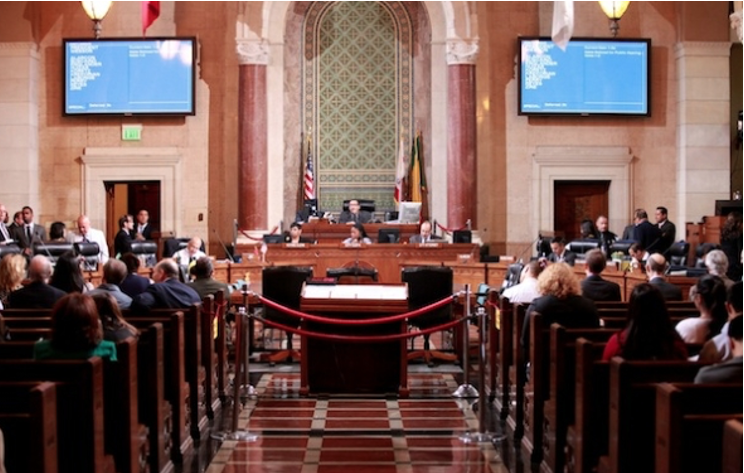CommentsFEES UNAPPEALING - It’s already hard enough to push back against the LA City Council’s gentrification juggernaut, but they’re planning to make it even harder.
The first item on the Council’s Tuesday, October 19 agenda is to raise fees for a number of planning services, including appeals for planning approvals. Currently, if an aggrieved person other than the project applicant wants to file an appeal, the fee is $109, including taxes and surcharges, $112 if paying by credit card. The proposed new base fee is $158, which rises to almost $200 when including additional charges. This figure will rise even higher, as the fee will be subject to annual increases based on the rate of inflation starting in July 2023. If you’ve been reading the latest financial news, you know that many economists are predicting a steep increase in consumer prices, leading to higher rates of inflation.
And the cost of appealing a project is multiplied, since many projects require that an aggrieved person file multiple appeals, each paid separately, at separate appeal levels. The appeal fees can therefore quickly escalate to $600 or more for the community to exhaust its administrative remedies. As an example, a Transit-Oriented Communities (TOC) project within a specific plan area that also requests a subdivision of the land would require two first level appeals to the City Planning Commission, with a separate second-level appeal to the City Council of the Tentative Tract Map.
The City claims they need to raise fees to cover the Planning Department’s $3.3 million deficit, but raising the non-applicant appeal fee would recover only about $15,000 annually. Increasing the appeal fee therefore is not a revenue recovery issue but merely a punitive measure to discourage the public from challenging approvals. And their claim that it requires more staff time to review an appeal than it does to approve the entitlements in the first place is hard to believe. According to the City, appeals require an average of 79.50 hours of staff time, but the report prepared for the DCP provides no indication of how these numbers were arrived at.
At the September 21 meeting of the Planning & Land Use Management (PLUM) Committee, Councilmember Gil Cedillo indicated the real reason for hiking appeal fees, which is to discourage the public from filing appeals in the first place. Here are Cedillo’s comments:
"This is very critical. Earlier were heard the challenges that were in front of us with respect to us meeting our regional housing requirements. None of this happens if we continue to permit those appeals that are not on point, that are dilatory, that take place away from the environment. Those are really holding us back, and frankly there's not enough cost recovery here, but still it provides us some pathways forward and hopefully we can begin to do the type of thoughtful development that comes from this committee and the departments and not be tied up with plans that are simply dilatory in their nature."
First, Cedillo seems to be asserting that raising the fees will discourage appeals that are “not on point”, but that doesn’t even make sense. The fee increase will be applied to all appeals filed by someone other than the project applicant. It’s not as though the City is applying a surcharge for appeals it deems frivolous. Raising the fees has nothing to do with “thoughtful development”. Clearly this is an effort to discourage the public from filing appeals. The LA City Council, which has repeatedly allowed developers to skirt affordable housing requirements and continues its assault on rent-stabilized housing, wants to make it even harder for the public to question their giveaways to developers.
If you want to let the Council know you oppose this move, you can access the Tuesday, October 19 agenda by clicking here.
Information on how to join the meeting is included in the agenda. Or if you’d like to reach out to the Councilmembers in advance of the meeting, you can find their contact info here.
Don’t let the City Council raise the non-applicant appeal fee. This is just another way for them to keep the public from pushing back against their pro-developer agenda.
(Doug Haines is a Hollywood resident who has been speaking out on planning issues for over a decade.)
















